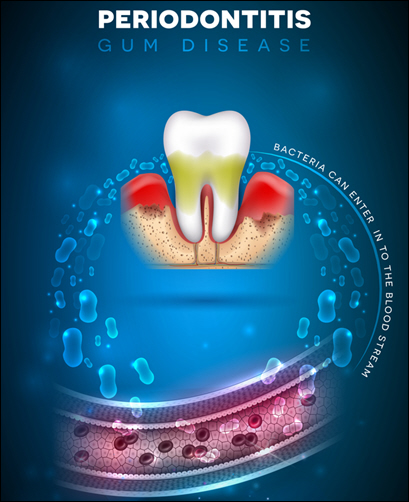Oral Hygiene and Good Dental Habits
Good oral hygiene protects teeth and gums from cavities, plaque, and gum disease. Daily brushing and flossing remove food particles and bacteria. Professional cleanings improve enamel strength and reduce plaque buildup. Healthy gums support tooth stability and increase chewing comfort. Avoiding sugary and acidic foods reduces enamel erosion and tooth decay. Fluoride treatments strengthen enamel and improve cavity resistance. Consistent care improves breath freshness and smile appearance. Stronger teeth and gums increase overall dental health and comfort. Understanding how to build good dental habits improves long-term dental strength. Let’s explore how to create and maintain effective oral hygiene habits.
Brush Twice a Day with Proper Technique
Brushing twice a day removes plaque and protects enamel. Use a soft-bristled toothbrush and fluoride toothpaste. Hold the brush at a 45-degree angle to the gumline. Use small, circular motions to clean all tooth surfaces. Brush the front, back, and chewing surfaces of each tooth. Brush for at least two minutes to remove plaque effectively. Clean your tongue to remove bacteria and improve breath freshness. Replace your toothbrush every three months or when bristles fray. Electric toothbrushes provide consistent pressure and improve plaque removal. Proper brushing reduces plaque and increases enamel strength. Clean teeth improve smile strength and overall comfort.
Floss Daily to Remove Plaque and Food Particles
 Flossing removes plaque and food particles from between teeth and under the gumline. Use about 18 inches of floss, wrapping it around your middle fingers. Gently slide the floss between teeth using a back-and-forth motion. Curve the floss into a “C” shape around each tooth. Clean under the gumline without snapping the floss. Flossing reduces gum inflammation and strengthens gum attachment. Water flossers provide an alternative for hard-to-reach areas. Flossing once a day prevents plaque buildup and gum disease. Clean gumlines reduce sensitivity and increase tooth stability. Stronger gums improve overall mouth health and bite strength. Flossing protects against cavities and gum infections.
Flossing removes plaque and food particles from between teeth and under the gumline. Use about 18 inches of floss, wrapping it around your middle fingers. Gently slide the floss between teeth using a back-and-forth motion. Curve the floss into a “C” shape around each tooth. Clean under the gumline without snapping the floss. Flossing reduces gum inflammation and strengthens gum attachment. Water flossers provide an alternative for hard-to-reach areas. Flossing once a day prevents plaque buildup and gum disease. Clean gumlines reduce sensitivity and increase tooth stability. Stronger gums improve overall mouth health and bite strength. Flossing protects against cavities and gum infections.
Use Fluoride to Strengthen Enamel
Fluoride strengthens enamel and increases cavity resistance. Brushing with fluoride toothpaste protects against acid erosion and bacterial damage. Professional fluoride treatments restore lost minerals and improve tooth strength. Fluoride mouthwash reduces sensitivity and increases plaque resistance. Drinking fluoridated water strengthens enamel and protects against cavities. Dentists recommend fluoride toothpaste with at least 1,000 ppm of fluoride. Fluoride seals small cracks and improves enamel durability. Stronger enamel increases chewing comfort and reduces sensitivity. Fluoride treatments reduce acid exposure and improve bite strength. Consistent fluoride use increases enamel strength and overall dental health. Better enamel protection reduces plaque and increases mouth comfort.
Maintain a Balanced Diet for Stronger Teeth
A balanced diet improves gum health and strengthens teeth. Calcium-rich foods like milk, cheese, and yogurt increase enamel strength. Leafy greens provide essential vitamins that improve gum health. Crunchy fruits and vegetables clean tooth surfaces and increase saliva production. Nuts and seeds supply magnesium and phosphorus, strengthening tooth roots. Avoid sugary snacks and acidic drinks that weaken enamel. Drinking water after meals removes food particles and plaque. Protein-rich foods increase muscle strength and improve chewing efficiency. Better nutrition increases gum strength and reduces plaque buildup. Stronger teeth improve overall chewing comfort and bite balance. A balanced diet improves long-term dental health and comfort.
Avoid Sugary and Acidic Foods
Sugary and acidic foods increase plaque buildup and enamel erosion. Bacteria feed on sugar, producing acids that weaken enamel. Soda, candy, and fruit juices increase acid exposure and cavity risk. Sticky and chewy snacks increase plaque retention and tooth decay. Rinsing with water after sugary foods reduces acid exposure. Eating crunchy fruits and vegetables increases saliva flow and cleans teeth. Avoiding hard candies and sugary gum reduces plaque formation. Proper brushing and flossing remove sugar and acid buildup. Better diet choices increase tooth strength and improve gum health. Reduced sugar intake protects enamel and increases long-term dental strength.
Stay Hydrated to Increase Saliva Production
Drinking water increases saliva flow and protects enamel. Saliva washes away food particles and bacteria. Proper hydration reduces dry mouth and increases plaque resistance. Fluoridated water increases enamel strength and reduces sensitivity. Dry mouth increases plaque buildup and gum inflammation. Rinsing with water after meals reduces sugar and acid exposure. Proper moisture increases gum strength and reduces sensitivity. Saliva protects against bacterial damage and increases mouth comfort. Better hydration reduces plaque formation and strengthens enamel. Drinking water increases mouth freshness and improves breath quality. Proper hydration increases long-term dental health and comfort.
Visit Your Dentist Regularly for Professional Cleanings
 Regular dental checkups prevent cavities and gum disease. Dentists recommend professional cleanings every six months. Cleanings remove plaque and tartar buildup that brushing misses. Scaling and root planing reduce gum inflammation and improve gum attachment. Professional fluoride treatments strengthen enamel and reduce sensitivity. Dentists detect early signs of cavities and gum disease. Early treatment prevents long-term dental issues and tooth loss. Professional cleanings improve tooth surface smoothness and stain resistance. Consistent dental care increases bite strength and chewing comfort. Stronger teeth reduce sensitivity and increase long-term dental health. Professional monitoring improves smile strength and overall comfort.
Regular dental checkups prevent cavities and gum disease. Dentists recommend professional cleanings every six months. Cleanings remove plaque and tartar buildup that brushing misses. Scaling and root planing reduce gum inflammation and improve gum attachment. Professional fluoride treatments strengthen enamel and reduce sensitivity. Dentists detect early signs of cavities and gum disease. Early treatment prevents long-term dental issues and tooth loss. Professional cleanings improve tooth surface smoothness and stain resistance. Consistent dental care increases bite strength and chewing comfort. Stronger teeth reduce sensitivity and increase long-term dental health. Professional monitoring improves smile strength and overall comfort.
Protect Teeth with Mouthguards and Sealants
Mouthguards protect teeth from grinding and sports-related injuries. Custom-fit guards provide better comfort and protection. Wearing a mouthguard reduces jaw strain and tooth damage. Dental sealants protect molars from plaque and acid erosion. Sealants create a smooth surface that prevents plaque buildup in deep grooves. The application process takes about 10 to 15 minutes per tooth. Professional monitoring maintains sealant strength and surface integrity. Guards protect enamel from pressure and grinding damage. Sealants increase cavity resistance and improve tooth durability. Consistent protection increases long-term dental strength and comfort. Better protection reduces plaque buildup and increases chewing comfort.
Boosting Confidence with a Healthy Smile
Good oral hygiene increases smile strength and confidence. Clean teeth increase comfort when speaking and eating. Stronger enamel improves bite alignment and chewing efficiency. Reduced plaque buildup increases breath freshness and mouth comfort. Balanced gumlines improve smile symmetry and facial balance. Reduced sensitivity increases comfort with hot, cold, and sweet foods. Stronger teeth and gums reduce the need for future dental treatments. Clean, white teeth increase confidence in social and professional settings. Better oral health increases comfort and overall dental strength. A confident smile improves personal and social interactions. Stronger enamel and gums improve overall dental health and comfort.
Good dental habits protect teeth and gums from plaque and cavities. Brushing and flossing daily strengthens enamel and improves gum health. Fluoride treatments increase enamel durability and reduce sensitivity. A balanced diet improves tooth strength and gum attachment. Professional cleanings remove plaque and tartar buildup, increasing enamel protection. Drinking water increases saliva flow and protects against acid erosion. Dental sealants and mouthguards protect teeth from damage and grinding. Investing in better oral hygiene increases smile strength and confidence. Stronger teeth and healthier gums improve long-term dental health. A healthy smile increases both comfort and personal confidence.




 Diabetes slows down the body’s natural healing process, which can complicate dental procedures. Even minor injuries, like a small sore on the gums or a tooth extraction site, may take longer to heal, increasing the chance of infection. This delayed healing can also make it more challenging to manage oral health issues like gum disease or ulcers. Dentists may take extra precautions when treating patients with diabetes to reduce the risk of post-procedure infections.
Diabetes slows down the body’s natural healing process, which can complicate dental procedures. Even minor injuries, like a small sore on the gums or a tooth extraction site, may take longer to heal, increasing the chance of infection. This delayed healing can also make it more challenging to manage oral health issues like gum disease or ulcers. Dentists may take extra precautions when treating patients with diabetes to reduce the risk of post-procedure infections.